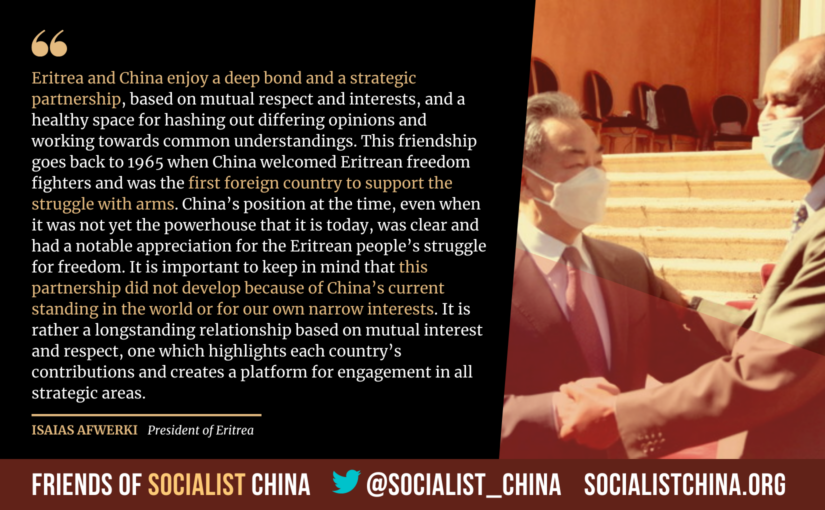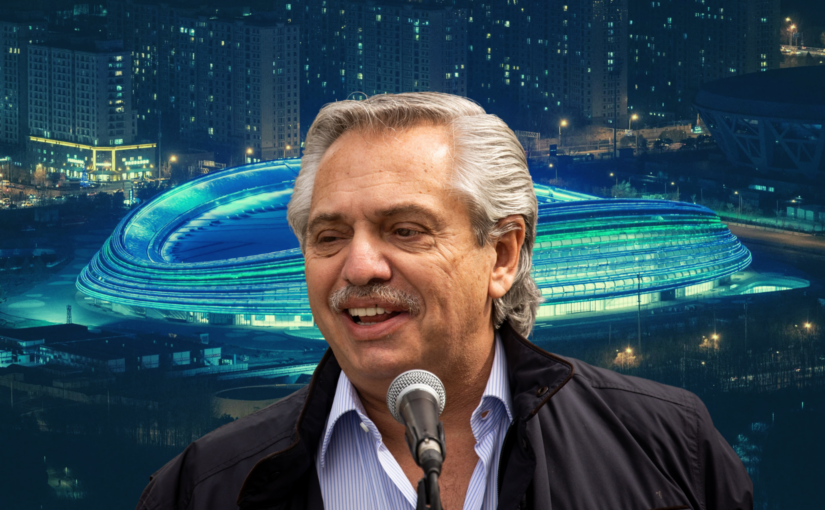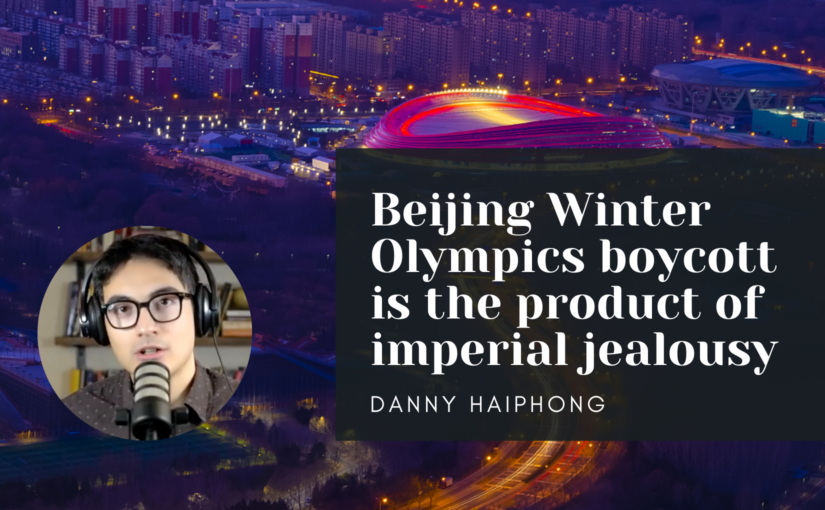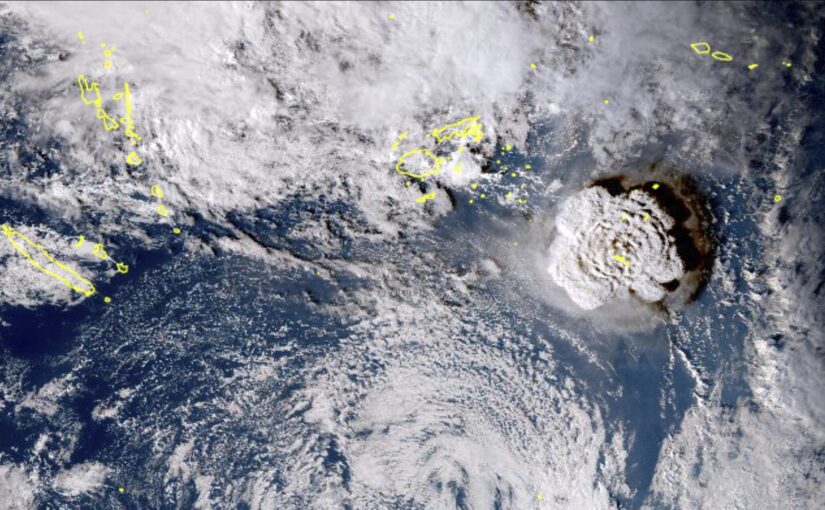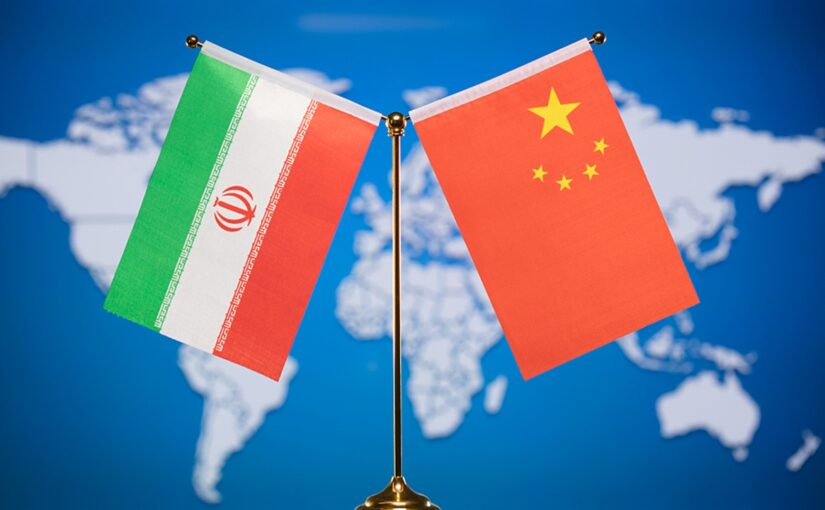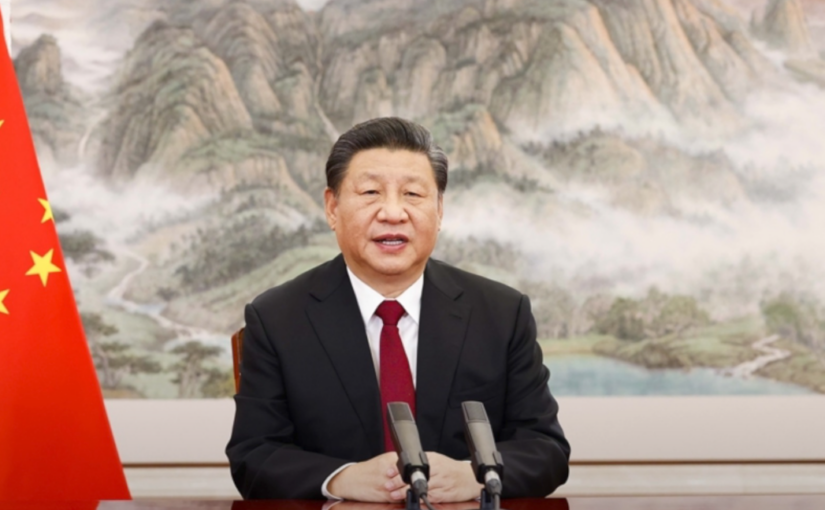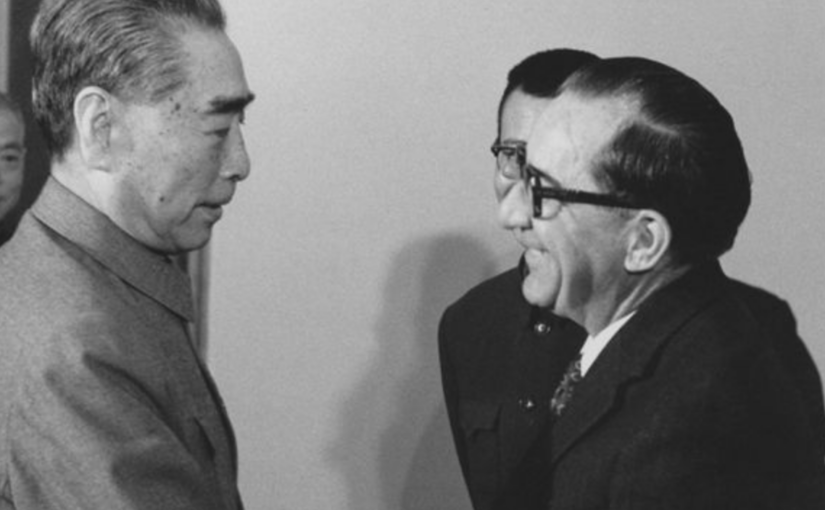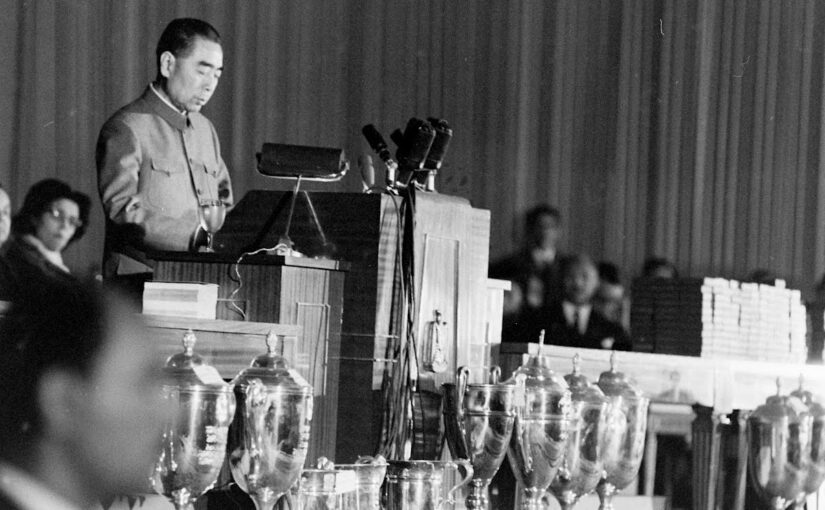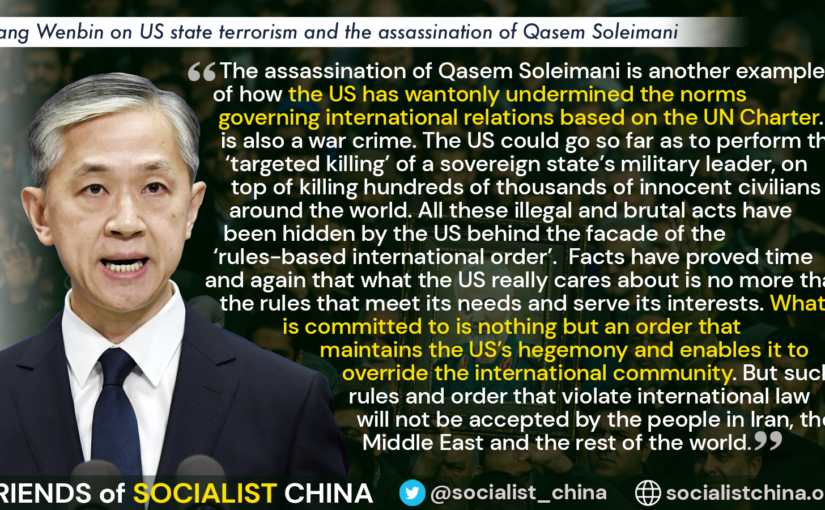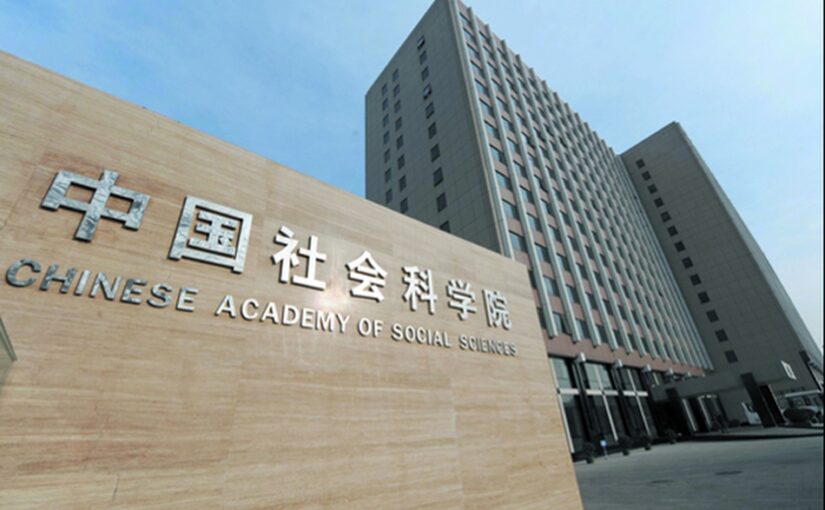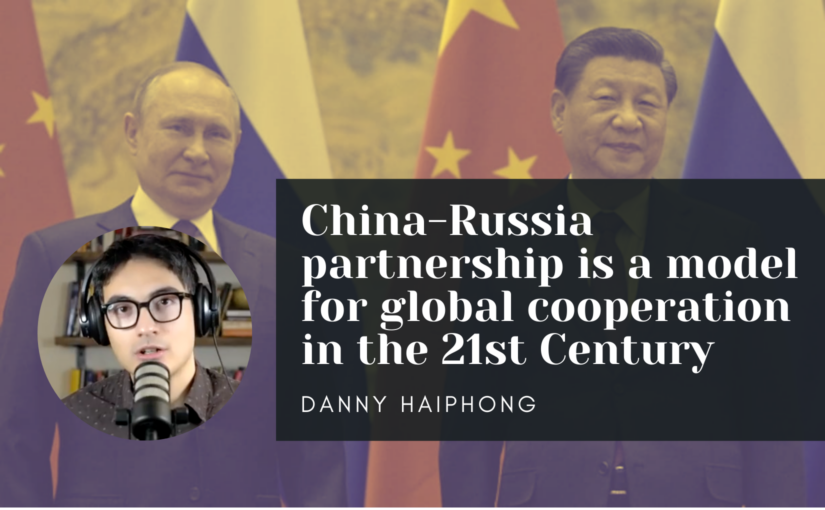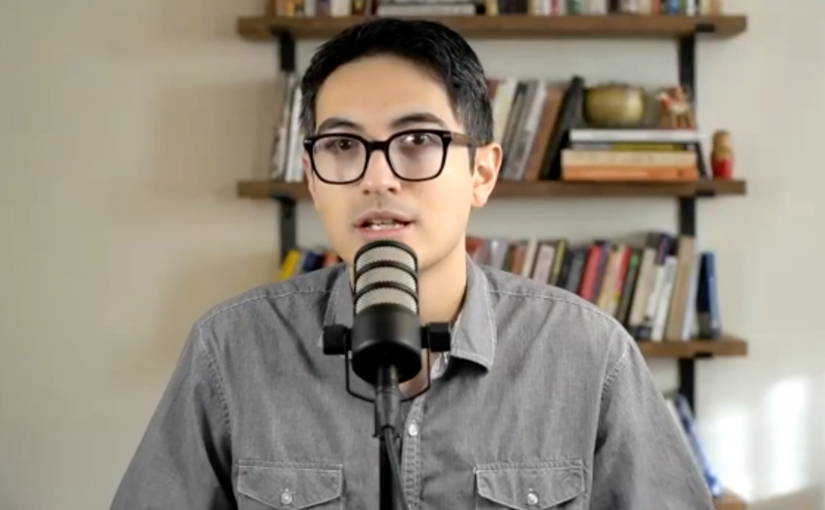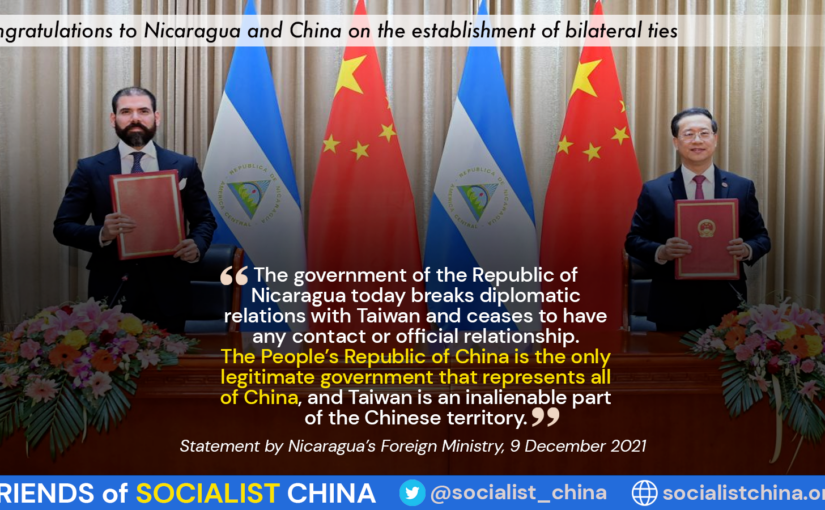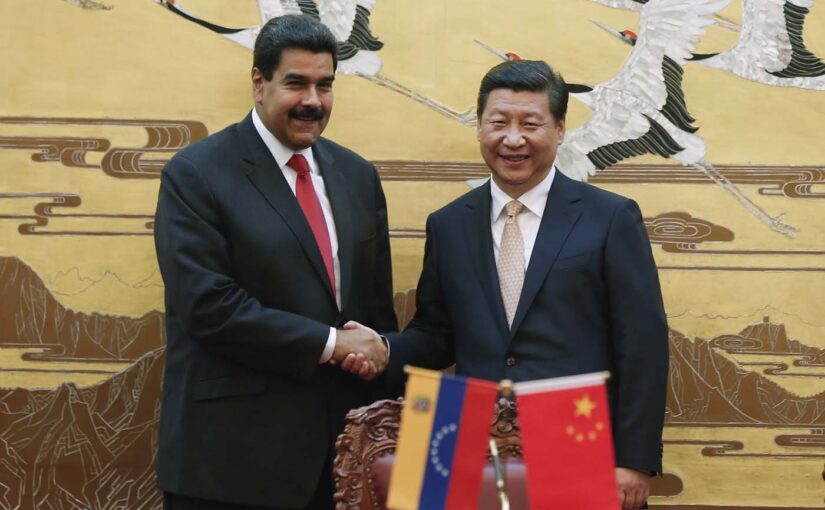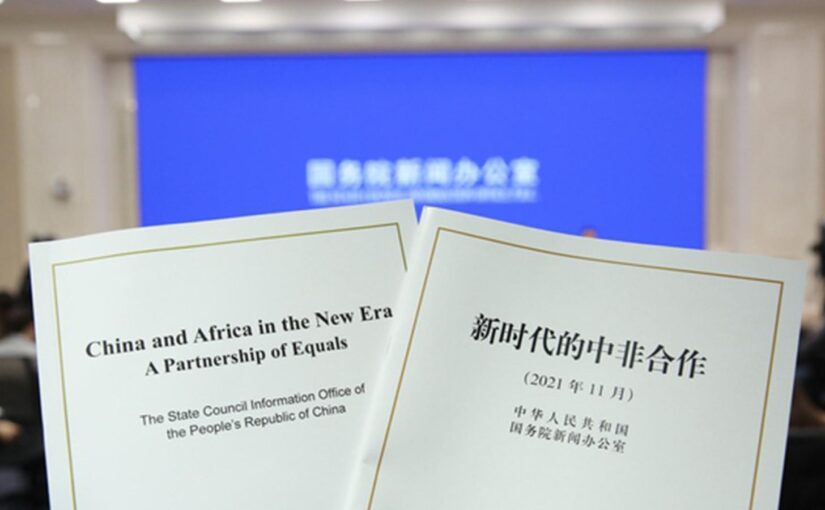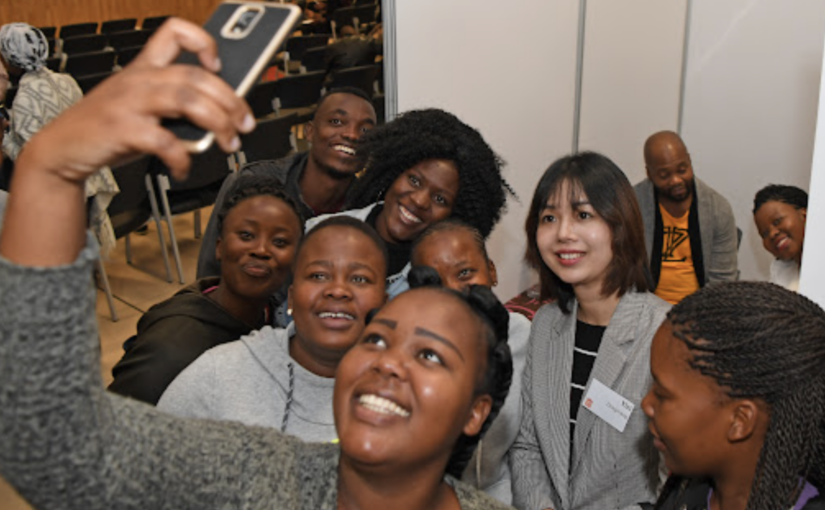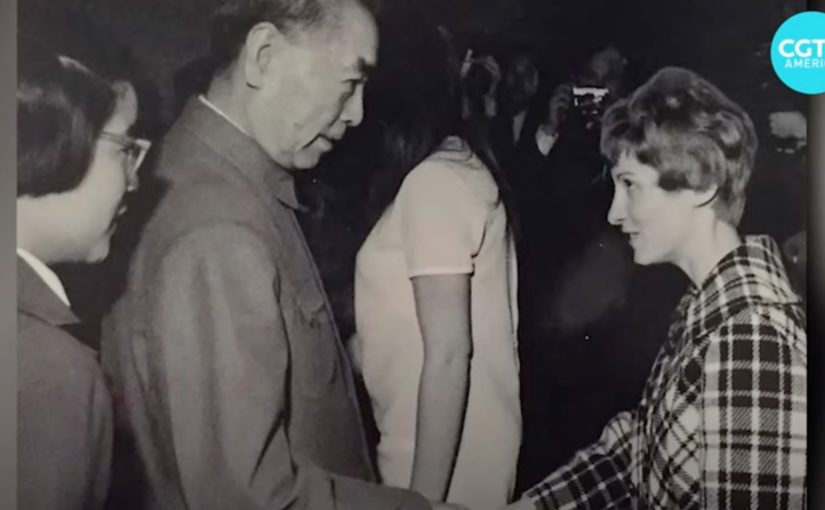Eritrea and China enjoy a deep bond and a strategic partnership, based on mutual respect and interests, and a healthy space for hashing out differing opinions and working towards common understandings. This friendship goes back to 1965 when China welcomed Eritrean freedom fighters and was the first foreign country to support the struggle with arms. China’s position at the time, even when it was not yet the powerhouse that it is today, was clear and had a notable appreciation for the Eritrean people’s struggle for freedom. It is important to keep in mind that this partnership did not develop because of China’s current standing in the world or for our own narrow interests. It is rather a longstanding relationship based on mutual interest and respect, one which highlights each country’s contributions and creates a platform for engagement in all strategic areas.
Eritrea: Interview of President Isaias Afwerki
Category: International relations
Argentina’s President Fernández to visit Chairman Mao Memorial Hall while attending Beijing Olympics
The Beijing Winter Olympics will open in a few days and, despite the pathetic attempts of a handful of imperialist countries to instigate a so-called boycott – and the practical difficulties caused by the global pandemic – dozens of heads of state and government and senior officials from governments and international organisations, particularly from the Global South, will descend on the Chinese capital to welcome this festival of sporting excellence, peace and friendship. One such leader will be Argentine President Alberto Fernandez. As Argentine Ambassador to China Sabino Vaca Narvaja explains in this interview with Global Times, that we are pleased to publish below, his President will have a hectic schedule in Beijing, with a highlight being a visit to the Chairman Mao Memorial Hall. The Ambassador explains that Argentina’s historic nationalist and anti-imperialist leader Juan Peron, to whose political tradition President Fernandez belongs, maintained a friendship and correspondence with Chairman Mao. “It was because of this historical connection that President Fernandez was invited to be one of the foreign leaders to address the ‘CPC and World Political Parties Summit’ last year, when the CPC celebrated its centennial,” the Ambassador remarked.
Argentine President Alberto Fernandez will visit Chairman Mao Memorial Hall during his visit to China for the opening ceremony of Olympic Winter Games Beijing 2022, Argentine Ambassador to China Sabino Vaca Narvaja told the Global Times in a recent exclusive interview.
“For both Argentina and the rest of the world, Mao is a very crucial state leader,” Narvaja explained.
President Fernandez is also president of Argentina’s Partido Justicialista Party, which has “very important historical ties” with the Communist Party of China (CPC), the ambassador said. “Former Argentine president Juan Peron even maintained friendship and correspondence with Chairman Mao,” said the ambassador. “It was because of this historical connection that President Fernandez was invited to be one of the foreign leaders to address the ‘CPC and World Political Parties Summit’ last year, when the CPC celebrated its centennial.”
Continue reading Argentina’s President Fernández to visit Chairman Mao Memorial Hall while attending Beijing OlympicsBeijing Winter Olympics boycott is the product of imperial jealousy
In this article, first published on CGTN, Danny Haiphong traces the motivation of the ‘diplomatic boycott’ of the Beijing Winter Olympics being carried out by the US and a handful of its allies. Danny observes that the boycott – like the overall New Cold War of which it is a part – is intended to further to central objectives: to undermine China’s accomplishments and to deflect from the shortcomings of the political and economic system prevailing in the major capitalist countries.
In a few weeks, athletes from across the globe will compete in the Winter Olympic Games in Beijing. The Games come amid a challenging period for the world. COVID-19 continues to contribute to greater economic and social instability. Militarism and climate change threaten the future of humanity. Instead of facing these challenges head on, some countries such as the United States have chosen to politicize the upcoming Winter Olympics in Beijing.
The politicization of the Olympics has taken many forms but the most significant is the U.S.-led “diplomatic boycott” of the Games announced early last month, which was justified on the basis of fraudulent and unproven claims of human rights violations in China. Organizations such as the World Uygur Congress and Students for a Free Tibet, both of which receive funding from the National Endowment for Democracy linked with the Central Intelligence Agency, are leading forces in the boycott campaign. The effort has also received bipartisan support in the U.S. Congress, with several Western countries following Joe Biden’s lead. In a blatant act of hypocrisy, 18 U.S. officials applied for visas with plans to visit Beijing during the Games shortly after the announced “diplomatic boycott.”
Continue reading Beijing Winter Olympics boycott is the product of imperial jealousyChina’s solidarity with Tonga and the islands of the Pacific
The eruption of an underwater volcano off the South Pacific island nation of Tonga has triggered a humanitarian crisis, cutting the country off from the outside world and damaging vital connectivity and infrastructure. This once again demonstrates the vulnerability of small island states in particular, faced with the challenges of overcoming centuries of colonial rule, developing their national economies and facing the existential threat of climate change. This useful article, which we reproduce from Global Times, notes that China has pledged all possible support and assistance to Tonga, both now and in the future. China, it further notes, is prepared to cooperate with all other countries in this endeavour and does not wish to see the South Pacific as an arena for any new Cold War. The island nations, it notes, “are not the backyard of the US and its allies”.
The massive eruption of an underwater volcano off Tonga, which triggered tsunami waves to hit the Pacific island nation and other locations in the Pacific, has become a focus of global headlines.
Tonga is in need of emergency aid, and China said it is willing to help. On Sunday, Chinese Foreign Ministry said that China is ready to provide every possible support and assistance to Tonga.
We hope those who see Tonga as a battlefield with China, such as the US and its allies, could work together with China to provide help to the Pacific island nation.
While the danger of the Tongan volcano erupting again remaining largely unknown, videos posted on social media and various news reports so far suggest that the eruption has caused serious damages to the island nation. For instance, Tonga’s submarine cable connectivity to the outside world has been offline since Saturday due to the earthquake caused by the volcanic eruption.
Continue reading China’s solidarity with Tonga and the islands of the PacificChina and Iran united on the path of peace and multipolarity
The following article by Hossein Amir-Abdollahian, Iran’s foreign minister, first appeared in the Global Times on 13 January 2022. The article provides an outline of China and Iran’s ongoing cooperation on a number of key issues, and highlights the shared purpose of the two countries in pursuing global peace, development and multipolarity.
Iran and China, the two great civilizations in West and East Asia, have enjoyed good, stable and strong relations during history.
Confucius, a famous educator in ancient China, said: It is always a pleasure to greet a friend from afar.
With the best wishes of the Iranian people to the Chinese friends, I am visiting China on the occasion of the beginning of 2022 and on the eve of the Chinese New Year of the Tiger and 1401 solar year.
Our two countries will celebrate the 51st anniversary of the establishment of diplomatic relations and will enter the second half of the century of bilateral exchange, which opens a new page of our relationship. Especially coinciding with the Chinese Communist Party entering the journey of its second 100 years, the visit will be a promising new horizon for our promotion and development of cooperation in various domains.
Continue reading China and Iran united on the path of peace and multipolarityXi Jinping’s address to the 2022 World Economic Forum
The following speech was delivered by President Xi Jinping on Monday 17 January by video link to the 2022 World Economic Forum virtual session.
In his special address, the Chinese President addressed a broad range of critical issues currently facing the global economy and human society, whilst also detailing his country’s domestic situation and goals. He remarked:
“The world today is undergoing major changes unseen in a century. These changes, not limited to a particular moment, event, country or region, represent the profound and sweeping changes of our times. As changes of the times combine with the once-in-a-century pandemic, the world finds itself in a new period of turbulence and transformation. How to beat the pandemic and how to build the post-COVID world? These are major issues of common concern to people around the world. They are also major, urgent questions we must give answers to.”
The first task, he noted, was to embrace cooperation and jointly defeat the pandemic rather than holding one another back or shifting blame. China, he reported, has already sent over two billion doses of vaccine to more than 120 countries and international organisations.
Further, President Xi remarked, steps have to be taken in a coordinated way to promote steady recovery of the world economy, to bridge the development divide, realise global development, and tackle climate change, based on a people-centred philosophy.
All this means, the Chinese President continued, that “we need to discard Cold War mentality and seek peaceful coexistence and win-win outcomes. Our world today is far from being tranquil; rhetoric that stokes hatred and prejudice abound. Acts of containment, suppression or confrontation arising thereof do all harm, not the least good, to world peace and security… Even worse are the practices of hegemony and bullying, which run counter to the tide of history.”
Professor Klaus Schwab,
Ladies and Gentlemen,
Friends,
Greetings to you all! It is my pleasure to attend this virtual session of the World Economic Forum.
In two weeks’ time, China will celebrate the advent of spring in the lunar new year, the Year of the Tiger. In Chinese culture, tiger symbolizes bravery and strength, as the Chinese people often refer to spirited dragon and dynamic tiger, or soaring dragon and leaping tiger. To meet the severe challenges facing humanity, we must “add wings to the tiger” and act with the courage and strength of the tiger to overcome all obstacles on our way forward. We must do everything necessary to clear the shadow of the pandemic and boost economic and social recovery and development, so that the sunshine of hope may light up the future of humanity.
The world today is undergoing major changes unseen in a century. These changes, not limited to a particular moment, event, country or region, represent the profound and sweeping changes of our times. As changes of the times combine with the once-in-a-century pandemic, the world finds itself in a new period of turbulence and transformation. How to beat the pandemic and how to build the post-COVID world? These are major issues of common concern to people around the world. They are also major, urgent questions we must give answers to.
As a Chinese saying goes, “The momentum of the world either flourishes or declines; the state of the world either progresses or regresses.” The world is always developing through the movement of contradictions; without contradiction, nothing would exist. The history of humanity is a history of achieving growth by meeting various tests and of developing by overcoming various crises. We need to move forward by following the logic of historical progress, and develop by riding the tide of development of our times.
Notwithstanding all vicissitudes, humanity will move on. We need to learn from comparing long history cycles, and see the change in things through the subtle and minute. We need to foster new opportunities amidst crises, open up new horizons on a shifting landscape, and pool great strength to go through difficulties and challenges.
First, we need to embrace cooperation and jointly defeat the pandemic. Confronted by the once-in-a-century pandemic, which will affect the future of humanity, the international community has fought a tenacious battle. Facts have shown once again that amidst the raging torrents of a global crisis, countries are not riding separately in some 190 small boats, but are rather all in a giant ship on which our shared destiny hinges. Small boats may not survive a storm, but a giant ship is strong enough to brave a storm. Thanks to the concerted efforts of the international community, major progress has been made in the global fight against the pandemic. That said, the pandemic is proving a protracted one, resurging with more variants and spreading faster than before. It poses a serious threat to people’s safety and health, and exerts a profound impact on the global economy.
Strong confidence and cooperation represent the only right way to defeat the pandemic. Holding each other back or shifting blame would only cause needless delay in response and distract us from the overall objective. Countries need to strengthen international cooperation against COVID-19, carry out active cooperation on research and development of medicines, jointly build multiple lines of defense against the coronavirus, and speed up efforts to build a global community of health for all. Of particular importance is to fully leverage vaccines as a powerful weapon, ensure their equitable distribution, quicken vaccination and close the global immunization gap, so as to truly safeguard people’s lives, health and livelihoods.
China is a country that delivers on its promises. China has already sent over two billion doses of vaccines to more than 120 countries and international organizations. Still, China will provide another one billion doses to African countries, including 600 million doses as donation, and will also donate 150 million doses to ASEAN countries.
Second, we need to resolve various risks and promote steady recovery of the world economy. The world economy is emerging from the depths, yet it still faces many constraints. The global industrial and supply chains have been disrupted. Commodity prices continue to rise. Energy supply remains tight. These risks compound one another and heighten the uncertainty about economic recovery. The global low inflation environment has notably changed, and the risks of inflation driven by multiple factors are surfacing. If major economies slam on the brakes or take a U-turn in their monetary policies, there would be serious negative spillovers. They would present challenges to global economic and financial stability, and developing countries would bear the brunt of it. In the context of ongoing COVID-19 response, we need to explore new drivers of economic growth, new modes of social life and new pathways for people-to-people exchange, in a bid to facilitate cross-border trade, keep industrial and supply chains secure and smooth, and promote steady and solid progress in global economic recovery.
Economic globalization is the trend of the times. Though countercurrents are sure to exist in a river, none could stop it from flowing to the sea. Driving forces bolster the river’s momentum, and resistance may yet enhance its flow. Despite the countercurrents and dangerous shoals along the way, economic globalization has never and will not veer off course. Countries around the world should uphold true multilateralism. We should remove barriers, not erect walls. We should open up, not close off. We should seek integration, not decoupling. This is the way to build an open world economy. We should guide reforms of the global governance system with the principle of fairness and justice, and uphold the multilateral trading system with the World Trade Organization at its center. We should make generally acceptable and effective rules for artificial intelligence and digital economy on the basis of full consultation, and create an open, just and non-discriminatory environment for scientific and technological innovation. This is the way to make economic globalization more open, inclusive, balanced and beneficial for all, and to fully unleash the vitality of the world economy.
A common understanding among us is that to turn the world economy from crisis to recovery, it is imperative to strengthen macro-policy coordination. Major economies should see the world as one community, think in a more systematic way, increase policy transparency and information sharing, and coordinate the objectives, intensity and pace of fiscal and monetary policies, so as to prevent the world economy from plummeting again. Major developed countries should adopt responsible economic policies, manage policy spillovers, and avoid severe impacts on developing countries. International economic and financial institutions should play their constructive role to pool global consensus, enhance policy synergy and prevent systemic risks.
Third, we need to bridge the development divide and revitalize global development. The process of global development is suffering from severe disruption, entailing more outstanding problems like a widening North-South gap, divergent recovery trajectories, development fault-lines and a technological divide. The Human Development Index has declined for the first time in 30 years. The world’s poor population has increased by more than 100 million. Nearly 800 million people live in hunger. Difficulties are mounting in food security, education, employment, medicine, health and other areas important to people’s livelihoods. Some developing countries have fallen back into poverty and instability due to the pandemic. Many in developed countries are also living through a hard time.
No matter what difficulties may come our way, we must adhere to a people-centered philosophy of development, place development and livelihoods front and center in global macro-policies, realize the UN’s 2030 Agenda for Sustainable Development, and build greater synergy among existing mechanisms of development cooperation to promote balanced development worldwide. We need to uphold the principle of common but differentiated responsibilities, promote international cooperation on climate change in the context of development, and implement the outcomes of COP26 to the United Nations Framework Convention on Climate Change. Developed economies should take the lead in honoring their emissions reduction responsibilities, deliver on their commitment of financial and technological support, and create the necessary conditions for developing countries to address climate change and achieve sustainable development.
Last year, I put forward a Global Development Initiative at the UN General Assembly to draw international attention to the pressing challenges faced by developing countries. The Initiative is a public good open to the whole world, which aims to form synergy with the 2030 Agenda for Sustainable Development and boost common development across the world. China stands ready to work with all partners to jointly translate the Initiative into concrete actions and make sure that no country is left behind in this process.
Fourth, we need to discard Cold War mentality and seek peaceful coexistence and win-win outcomes. Our world today is far from being tranquil; rhetoric that stokes hatred and prejudice abound. Acts of containment, suppression or confrontation arising thereof do all harm, not the least good, to world peace and security. History has proved time and again that confrontation does not solve problems; it only invites catastrophic consequences. Protectionism and unilateralism can protect no one; they ultimately hurt the interests of others as well as one’s own. Even worse are the practices of hegemony and bullying, which run counter to the tide of history. Naturally, countries have divergences and disagreements between them. Yet a zero-sum approach that enlarges one’s own gain at the expense of others will not help. Acts of single-mindedly building “exclusive yards with high walls” or “parallel systems,” of enthusiastically putting together exclusive small circles or blocs that polarize the world, of overstretching the concept of national security to hold back economic and technological advances of other countries, and of fanning ideological antagonism and politicizing or weaponizing economic, scientific and technological issues, will gravely undercut international efforts to tackle common challenges.
The right way forward for humanity is peaceful development and win-win cooperation. Different countries and civilizations may prosper together on the basis of respect for each other, and seek common ground and win-win outcomes by setting aside differences.
We should follow the trend of history, work for a stable international order, advocate common values of humanity, and build a community with a shared future for mankind. We should choose dialogue over confrontation, inclusiveness over exclusion, and stand against all forms of unilateralism, protectionism, hegemony or power politics.
Ladies and Gentlemen,
Friends,
Last year, the Communist Party of China (CPC) celebrated the 100th anniversary of its founding. Through a century of tenacious struggle, the CPC has rallied and led the Chinese people in accomplishing remarkable achievements in the advancement of the nation and betterment of people’s lives. We have realized a moderately prosperous society in all respects and won the battle against poverty, both according to plan, and found a historic solution to ending absolute poverty. Now, China is marching on a new journey of building a modern socialist country in all respects.
– China will stay committed to pursuing high-quality development. The Chinese economy enjoys a good momentum overall. Last year, our GDP grew by around eight percent, achieving the dual target of fairly high growth and relatively low inflation. Shifts in the domestic and international economic environment have brought tremendous pressure, but the fundamentals of the Chinese economy, characterized by strong resilience, enormous potential and long-term sustainability, remain unchanged. We have every confidence in the future of China’s economy.
“The wealth of a country is measured by the abundance of its people.” Thanks to considerable economic growth, the Chinese people are living much better lives. Nonetheless, we are soberly aware that to meet the people’s aspiration for an even better life, we still have much hard work to do in the long run. China has made it clear that we strive for more visible and substantive progress in the well-rounded development of individuals and the common prosperity of the entire population. We are working hard on all fronts to deliver this goal. The common prosperity we desire is not egalitarianism. To use an analogy, we will first make the pie bigger, and then divide it properly through reasonable institutional arrangements. As a rising tide lifts all boats, everyone will get a fair share from development, and development gains will benefit all our people in a more substantial and equitable way.
– China will stay committed to reform and opening-up. For China, reform and opening-up is always a work in process. Whatever change in the international landscape, China will always hold high the banner of reform and opening-up. China will continue to let the market play a decisive role in resource allocation, and see to it that the government better plays its role. We will be steadfast in consolidating and developing the public sector, just as we are steadfast in encouraging, supporting and guiding the development of the non-public sector. We will build a unified, open, competitive and orderly market system, where all businesses enjoy equal status before the law and have equal opportunities in the marketplace. All types of capital are welcome to operate in China in compliance with laws and regulations, and play a positive role for the development of the country. China will continue to expand high-standard opening-up, steadily advance institutional opening-up that covers rules, management and standards, deliver national treatment for foreign businesses, and promote high-quality Belt and Road cooperation. With the entry into force of the Regional Comprehensive Economic Partnership Agreement (RCEP) on 1 January this year, China will faithfully fulfill its obligations and deepen economic and trade ties with other RCEP parties. China will also continue to work for the joining of the Comprehensive and Progressive Agreement for Trans-Pacific Partnership (CPTPP) and the Digital Economy Partnership Agreement (DEPA), with a view to further integrating into the regional and global economy and achieving mutual benefit and win-win results.
– China will stay committed to promoting ecological conservation. As I have said many times, we should never grow the economy at the cost of resource depletion and environmental degradation, which is like draining a pond to get fish; nor should we sacrifice growth to protect the environment, which is like climbing a tree to catch fish. Guided by our philosophy that lucid waters and lush mountains are invaluable assets, China has carried out holistic conservation and systematic governance of its mountains, rivers, forests, farmlands, lakes, grasslands and deserts. We do everything we can to conserve the ecological system, intensify pollution prevention and control, and improve the living and working environment for our people. China is now putting in place the world’s largest national parks system. Last year, we successfully hosted COP15 to the Convention on Biological Diversity, contributing China’s share to a clean and beautiful world.
Achieving carbon peak and carbon neutrality are the intrinsic requirements of China’s own high-quality development and a solemn pledge to the international community. China will honor its word and keep working toward its goal. We have unveiled an Action Plan for Carbon Dioxide Peaking Before 2030, to be followed by implementation plans for specific sectors such as energy, industry and construction. China now has the world’s biggest carbon market and biggest clean power generation system: the installed capacity of renewable energy has exceeded one billion kilowatts, and the construction of wind and photovoltaic power stations with a total installed capacity of 100 million kilowatts is well under way. Carbon peak and carbon neutrality cannot be realized overnight. Through solid and steady steps, China will pursue an orderly phase-down of traditional energy in the course of finding reliable substitution in new energy. This approach, which combines phasing out the old and bringing in the new, will ensure steady economic and social development. China will also actively engage in international cooperation on climate and jointly work for a complete transition to a greener economy and society.
Ladies and Gentlemen,
Friends,
Davos is known as a heaven for winter sports. The Beijing Olympic and Paralympic Winter Games will open soon. We are confident that China will present a streamlined, safe and splendid Games to the world. The official motto for Beijing 2022 is “Together for a Shared Future.” Indeed, let us join hands with full confidence, and work together for a shared future.
Thank you.
China’s loans and projects transformed Malta’s economy
This year sees the 50th anniversary of the establishment of diplomatic relations between China and Malta. China is a large country in East Asia with a population of some 1.4 billion people. Malta is a small European country in the Mediterranean with a population of less than half a million. Yet the two countries share a deep and profound friendship.
With the Golden Jubilee of diplomatic relations approaching, on January 10, President Xi Jinping had a telephone conversation with his Maltese counterpart George Vella. According to the official read out from the Chinese Foreign Ministry:
“Xi Jinping pointed out, China and Malta are old and good friends that have withstood the test of time. Half a century ago, the elder generation of Chinese and Maltese leaders, with great vision and foresight, jointly forged friendly relations between China and Malta. Over the past 50 years, no matter how the international situation changes, China-Malta relations have been developing in a sound and steady manner, with deepening friendship and fruitful cooperation in various fields. In the face of challenges such as the international financial crisis and the COVID-19 pandemic, the two sides have always helped and supported each other.”
For his part, President Vella responded: “Bilateral relations have become more mature and made remarkable achievements, setting a good example of state-to-state relations. Malta is firmly committed to further developing its friendly relations with China and is ready to strengthen high-level exchanges and deepen practical cooperation with China in various fields. Malta cherishes the precious opportunities brought by Belt and Road cooperation and is ready to continue to advance relevant cooperation with China. I hope that Malta-China relations will develop even better in the next 50 years and bring more benefits to the two peoples. Malta firmly adheres to the one-China principle and firmly supports multilateralism. Malta is ready to play a positive role in promoting the development of EU-China relations. Malta highly appreciates China’s vaccine aid for the international community’s fight against the COVID-19 pandemic and its positive contribution to the global response to climate change, and looks forward to closer cooperation with China.”
Although Malta won its independence from a century and a half of British colonial rule in 1964, it remained a neo-colony under the military and economic domination of British imperialism. All that was set to change with the election of a Labour government under the Prime Ministership of Dom Mintoff in 1971. Under his visionary leadership, Malta was transformed from a British neo-colony into a bastion of anti-imperialism and a mainstay of the Non-Aligned Movement. He also expanded the state and public sector of the economy, with extensive nationalisation, established a comprehensive welfare state, and enacted key social reforms, including equal pay for men and women and the decriminalisation of homosexuality. All this required the forging of international alliances and Mintoff assiduously developed close friendships with such outstanding revolutionary leaders of the developing world as Mao Zedong, Kim Il Sung, Muammar Gadaffi and Nicolae Ceausescu, among others. Above all, it was Mintoff’s deep and genuine friendship with Socialist China that enabled Malta to expel the British military bases and to stand up in the world. This writer vividly remembers the consternation of the British TV newsreader reporting Mintoff’s crossing back into the then British colony of Hong Kong, sporting a large badge of Chairman Mao on his suit jacket lapel following a meeting in Beijing with the Chinese leader.
Naturally all this earned Mintoff the undying hatred of the British ruling class. Particular and sustained vitriol was poured by the Daily Mail, a right wing British daily which had supported the British Union of Fascists in the 1930s, who dubbed him “desperate Dom”. Their hatred became positively apoplectic when his daughter Yana, then a student in London, and a key activist in the Troops Out Movement (TOM), campaigning for Irish independence and reunification, hurled horse dung on MPs from the public gallery of the House of Commons in solidarity with the ‘dirty protest’ waged by Irish Republican prisoners in the north of Ireland. (The ‘dirty protest’ was to culminate in the 1981 hunger strike in which 10 young Volunteers from the Irish Republican Army and the Irish National Liberation Army were to heroically lay down their lives.)
Without the British military bases, Malta would have faced economic ruin. That is why, in 1975, China built Dock Number Six in the harbour of the Maltese capital Valetta. Far better known as the Red China Dock, this engineering feat remains the largest dry dock in the Mediterranean. At that time, China was still a poor country and its economy was reeling from the turmoil of the Cultural Revolution. On a per capita basis, Malta was clearly a more prosperous country. But Chairman Mao and Premier Zhou Enlai saw it as their solemn internationalist duty to help Malta take the road of independence and the building of a new society.
Visiting the Red China Dock on 7th September 2021, China’s Ambassador to Malta Yu Dunhai noted that it is, “a significant symbol of China-Malta friendship and remains as a monument in the heart of the people devoting themselves to China-Malta friendship. More than 40 years ago, China overcame its economic and technological limits, provided 100 million RMB interest-free loan and sent about 800 technicians to Malta to construct the dry dock, which showcases the sincere friendship between our two countries. Two Chinese engineers, Mr. Xu Huizhong and Mr. Gu Zhaoyan, lost their lives during the construction. Their great effort and sacrifice laid solid foundation for China-Malta ongoing friendship.”
We are therefore very pleased to reproduce from Shine News, the online platform of the prestigious Shanghai Daily, the following interview with Dr Alex Sceberras Trigona, Foreign Minister of Malta from 1981-87. In this period, Dr Trigona worked closely with Deng Xiaoping to carry forward and develop the friendship established with the preceding generation of Chinese leaders.
(Introduction by Friends of Socialist China co-editor Keith Bennett).
Dr Alex Sceberras Trigona recalls the big moment when he had to arrange a meeting between Malta Prime Minister Dom Mintoff and Chinese leader Deng Xiaoping in 1982 when he served as Malta’s minister for foreign affairs.
China and Malta established diplomatic ties in 1972, and Sceberras Trigona was instrumental in strengthening the relationship between the two countries during his tenure as foreign minister from 1981 to 1987. He has lost track of the number of times he has visited China but thinks “it could be 30 to 40 times” at least.
He has experienced the “hospitality and big heart” of China and was involved in the documentation and negotiations of projects that China helped build in Malta. He had negotiated and concluded Malta’s Neutrality Agreements in the worst years of the Cold War and has met generations of the Chinese people, from leaders to young students. He opened Malta’s embassy in Beijing.
Continue reading China’s loans and projects transformed Malta’s economyZhou Enlai’s Legacy in the Belt and Road Initiative
We are very pleased to republish this important article on the internationalist activities of Premier Zhou Enlai by Chinese scholars Han Tongyou and Xu Zhengfei. This English language version was originally machine translated by Dongsheng’s Chinese Voices, to whom grateful thanks.
Zhou Enlai, whose 46th death anniversary fell on January 8th, was New China’s first Premier, serving from the founding of the People’s Republic in 1949 to his death in 1976. He also doubled up as the PRC’s first Foreign Minister, 1949-58. He was a tireless worker, an extraordinary statesperson and an outstanding Marxist-Leninist. He is still remembered with boundless respect and affection by the Chinese people and progressive people around the world.
In this article, Han and Xu comprehensively outline how, integrating patriotism and internationalism, Premier Zhou stood on the side of the socialist countries and firmly supported struggles against imperialism and the process of decolonisation. In particular, he brilliantly applied and creatively enriched and developed Lenin’s thesis of peaceful coexistence for a period in which the existence of states with different and varying social systems had proved to be a phenomenon of considerable historical duration. On this basis, he advanced proletarian diplomacy and the theory and practice of the united front regarding the nationalist regimes of various hues that developed in the formerly colonised countries especially from the 1950s onwards.
The authors correctly assert that Zhou’s practice and example played a major role in laying the long-term groundwork for today’s Belt and Road Initiative (BRI) as well as the concept of building a community with a shared future for humanity. He personally visited more than 18 countries along the Belt and Road and his Five Principles of Peaceful Coexistence and Eight Principles in Foreign Aid have stood the test of time.
Executive Summary
Among the countries along the Belt and Road today, Zhou Enlai, the world’s most distinguished diplomat, has personally visited more than 18 countries and established diplomatic relations with more than 36 countries, which has had a wide and far-reaching impact. This article explores Zhou Enlai’s diplomatic activities with countries along the Belt and Road, analyzes his design for spreading China’s voice and telling China’s story, and demonstrates his remarkable contribution to shaping China’s international image and showcasing the charm of a great power. Zhou Enlai’s thoughts and practices are of great relevance to us today in implementing the “Belt and Road” initiative and promoting the community of human destiny.
Keywords: Belt and Road, Zhou Enlai diplomacy, peaceful coexistence, seeking common ground while preserving differences
“Zhou Enlai is a glorious name, an immortal name.” During his 26 years of leadership and diplomatic work, Zhou Enlai personally visited more than 18 countries along the “Belt and Road” and established diplomatic relations with more than 36 countries, creating a new situation in the diplomatic career of the new China, greatly enhancing China’s international prestige, demonstrating China’s image as a great power to the world, and making a great impact. It has greatly enhanced China’s international prestige, demonstrated China’s image as a great power to the world and had a great impact.
In 2013, after General Secretary Xi Jinping proposed the idea of jointly building the Silk Road Economic Belt and the 21st Century Maritime Silk Road, the Belt and Road Initiative gradually entered the domestic and international horizon. On March 27, 2015, authorized by the State Council, the National Development and Reform Commission, the Ministry of Foreign Affairs and the Ministry of Commerce jointly issued the “Vision and Action for Promoting the Construction of the Silk Road Economic Belt and the 21st Century Maritime Silk Road”. The introduction of this document marked the decision of the “Belt and Road” initiative into the implementation and construction phase.
In response to the ever-changing international and domestic situation, Zhou Enlai spoke on several occasions in February 1957 about the division of the nature of countries at that time, mainly socialist countries, nationalist countries and imperialist countries, and then clarified China’s foreign policy: unite socialist countries for the better; fight for national independent countries and make a good united front; against imperialism, be vigilant and guard against war, but not to take the initiative. There are many socialist and nationalist countries in the “Belt and Road”.
First, it will strengthen contacts with socialist countries, open up a new pattern of diplomacy for the new China, and establish a new national image.
China was a socialist country. The capitalist camp, represented by the United States, and the socialist camp, led by the Soviet Union, were strongly opposed to each other, and because of the extreme hostility of the capitalist countries to the new China, it was decided that China could only adopt a “one-sided” foreign policy and join the socialist camp. Thus, within three months of the founding of New China, 11 countries with which China established diplomatic relations were all socialist countries, including Mongolia, Vietnam, Poland, Bulgaria, Albania, Czechoslovakia, Hungary, Romania, and the Soviet Union, which later split into 15 independent states. The establishment of diplomatic relations was only the first step in the political interaction between countries; the promotion of all aspects of the country’s development was the fundamental goal, and for this reason Zhou Enlai was frequently active on the international stage.
The old China was poor, and after many years of war, the new China was in need of reconstruction. In order to restore and develop the national economy, Zhou Enlai visited the Soviet Union under Stalin three times and signed a series of economic, political, diplomatic and military contracts, which led to all-round cooperation between the two sides. In particular, during the implementation of China’s first five-year plan, Zhou Enlai actively carried out diplomacy with the Soviet Union to restore the national economy, achieving remarkable results and promoting the development of China’s socialist construction. Vietnam has a long history of relations with China and is a socialist country. As the leader of Vietnam’s national liberation and independence, Ho Chi Minh and Zhou Enlai shared a deep revolutionary friendship, which made the Sino-Vietnamese relations extraordinary. Unlike Sino-Soviet relations, Sino-Vietnamese relations were more about China’s help to Vietnam, such as helping Vietnam to resist the aggression of the French and American imperialists and helping them to develop their national economy. Zhou Enlai visited Vietnam seven times and brought a lot of military supplies, loans and technology, which were warmly welcomed by the Vietnamese people. The situation of Mongolia was similar to that of Vietnam, and it was also a country that needed China’s assistance. Zhou Enlai visited Mongolia 2 times and gave it necessary help from both political and economic aspects to promote its development.
Poland and Hungary were both Eastern European countries that achieved national independence and built socialism with the help of the Soviet Union. However, after Stalin’s death, due to Khrushchev’s criticism of Stalin, the Polish- Hungarian Incident occurred, the Soviet Union sent troops to Hungary, and the socialist camp was momentarily divided. In this situation, Zhou Enlai visited these two countries from January 11 – 17, 1957, in order to maintain the unity of the socialist camp. In Poland, Zhou Enlai put forward eight proposals, which were welcomed by the Polish party members, who said: “There are many interesting, interesting and useful things in Premier Zhou Enlai’s speech, which we will study carefully”; Hungary was badly damaged and the country was in difficulties, so Zhou Enlai came to the capital personally, despite the danger to his personal security. It touched the whole Hungary.
In his dealings with these socialist countries, Zhou Enlai gave full play to his high diplomatic skills and noble personality, and achieved outstanding diplomatic success. On the one hand, China received assistance from the Soviet Union, which stabilized the domestic situation and promoted the construction of China in all aspects. On the other hand, from the economic, military and diplomatic aspects, China assisted other socialist countries, helping them to oppose aggression, achieve national independence, develop socialist economy, and strengthen the socialist camp. Second, to enhance exchanges with nationalist countries, develop good neighborly relations and establish the image of a great power.
In the late 1950s, as the domestic situation in China and the Soviet Union changed and the two parties diverged on the line of the international communist movement, the “one-sided” pattern became untenable, and Chinese diplomacy, under the direct leadership of Zhou Enlai, gradually developed an independent diplomatic line based on the Five Principles of Peaceful Coexistence. It focused on developing relations with nationalist countries.
China and other Asian and African countries had a common situation, they had just overthrown the colonial rule, gradually mastered their own destiny and future, and shared common development needs, so it was easier to gain mutual understanding, and the rapid development of the new China gradually attracted their attention. By the time of the Asia-Africa Conference in 1954, 22 countries had formally established diplomatic relations with China, including 12 socialist countries and 10 nationalist countries, and countries along the “Belt and Road” such as India, Burma, Indonesia, Pakistan and Afghanistan, followed by Nepal, Ceylon (later renamed Sri Lanka), Cambodia, Egypt and Turkey. The “One Belt and One Road” countries such as India, Burma, Indonesia, Pakistan, Afghanistan, followed by Nepal, Ceylon (later renamed Sri Lanka), Cambodia, Egypt, and Turkey also established diplomatic relations with China.
In relations with Southeast Asian countries, Zhou Enlai always adhered to the policy of peaceful and good-neighborly relations and resolved the border dispute issue well. The Sino-Burma border issue is a good example of China’s handling of border issues. Zhou Enlai pointed out at the border demarcation meeting that “this work needs to be done very carefully and prudently; to stand firm on the national position and to take care of friendly relations; to draw the border in a practical way and not to lose our sovereignty.” In order to solve the border issue, Zhou Enlai proposed the principle of “mutual understanding and compromise”, and after many rounds of consultations, surveys and negotiations, an agreement was finally reached and the border was demarcated. Myanmar’s Prime Minister U Nu commented on the matter: “I and some people in the Myanmar government were satisfied, and the diplomatic team of the cabinet also considered the Prime Minister’s proposal to be reasonable. Using this as an example, China went on to successfully resolve border issues with Nepal, Afghanistan, Pakistan and other nationalist countries respectively, securing a peaceful environment for China’s socialist construction at the time.
In order to better develop domestic economic construction, Zhou Enlai also actively developed economic and trade exchanges with nationalist countries. He emphasized : “The purpose of foreign trade is to develop production so that products can be sold and materials necessary for the country can be bought in.” In the autumn of 1952, Zhou Enlai asked the Ministry of Foreign Affairs to conduct state negotiations with Ceylon, which culminated in the signing of an economic and trade agreement to exchange rubber for rice, meeting the respective development needs of both countries. Starting from 1956, China began to provide economic aid to Cambodia, supplying various commodities and materials free of charge and helping to build complete equipment projects, making Cambodia the first country in which China provided free aid to a nationalist country. Thanks to Zhou Enlai’s extraordinary diplomatic achievements, the political status of the new China was improved and the development of China’s trade with Asian and African nationalist countries advanced a big step. After the Bandung Conference, China launched government-to-government trade activities with Syria, Lebanon, Yemen, Afghanistan, Iraq, Pakistan, Nepal and other countries one after another. In Africa, Zhou Enlai worked with Egyptian President Nasser to promote the development of trade between the two countries. He also sent Foreign Trade Minister Ye Jizhuang to organize the opening ceremony of the China Commodity Trade Fair in Egypt, which expanded China’s influence in Africa and subsequently more than 10 African countries established trade relations with China.
During his premiership, Zhou Enlai promoted a large number of foreign affairs activities with countries along the “Belt and Road”, with the following main features:
First, the development concept of opening up to the outside world is proposed. Although Zhou Enlai did not explicitly put forward the concept of “opening up to the outside world” during his lifetime, he had already reflected this concept in his discussions on foreign politics, economy, diplomacy and culture. Zhou Enlai pointed out that “any country in construction, any country in the world, cannot be completely closed and self-sufficient, but always in need of each other”, and therefore “the idea of building behind closed doors is also wrong. He explained the historical necessity of opening up to the outside world from the height of the times. In response to the economic and cultural backwardness of China at that time, Zhou Enlai said in a foreign affairs conversation with the Prime Minister of Pakistan on October 19, 1956 that “China itself has lagged behind for a century” and that “the world science has made particularly great and rapid progress in the last twenty or thirty years, and these advances have left us These advances have left us far behind in the development of science.” General Secretary Xi Jinping clearly pointed out in his speech at the symposium commemorating the 120th anniversary of the birth of Comrade Zhou Enlai that Zhou Enlai attached great importance to learning advanced foreign technology, emphasizing that “to dare to learn from the strengths of all countries is the expression of the greatest self-confidence and self-respect, and such a nation must also be a nation capable of self-reliance.” In his foreign affairs activities, he emphasized the importance of learning and advocated learning from all countries. “We must learn not only from the Soviet Union and from our brother countries, but also from all countries in the world, including those that are peaceful and neutral, such as India, Burma, Indonesia, Egypt, etc.” It can be seen that Zhou Enlai’s idea of opening up to the outside world has broken through the shackles of ideology and social system and embodies visionary insight. He insisted on the principles of equality and mutual benefit, mutual benefit and common development, and advocated learning from all the strengths of these countries.
Learning from the Soviet Union had become a trend at the beginning of the new China, and Zhou Enlai was also the driving force behind the “learning from the Soviet Union”. He said: “The Chinese people are now working on their first five-year construction plan. In order to ensure the success of this construction, it is necessary to learn from the advanced experience of socialist construction in the Soviet Union, as Comrade Mao Zedong has often called for, honestly and diligently. The Soviet Union’s today is our tomorrow.” With the arrival of large numbers of Soviet experts in China, a nationwide movement was formed calling for the study of Soviet experts’ knowledge and technology as well as ideas, styles and methods, which promoted the construction and development of early New China and laid the foundation for China’s later national economy. Zhou Enlai often asked to take the initiative to study the advanced technology outside and to exchange with an attitude of learning. When reviewing the program of the Song and Dance Troupe of the Political Department of Xinjiang Military Region, which was to perform in Egypt and other African countries, he told the actors that you were the first ones to go to Africa and were the advance team of diplomatic work, so you should learn from the African people with an open mind in order to express the deep love and friendship of the Chinese people to them, and never have a big country mentality, but learn the advanced aspects of other countries to better promote the development of our country.
Second, adhering to the unity of patriotism and internationalism. Zhou Enlai was a model of unity between patriotism and internationalism. In 1952, he clearly pointed out in “Our Foreign Policy and Tasks” that the guiding ideology of the new China’s diplomacy was “to adhere to internationalism and oppose narrow nationalism” and “to adhere to patriotism and oppose cosmopolitanism”. Our internationalism is to make all countries independent and equal” and “socialist patriotism is not narrow nationalism, but patriotism that strengthens national self-confidence under the guidance of internationalism”.
In the early days of the founding of the People’s Republic of China, the new China adopted a “one-sided” foreign policy and fell back on the socialist camp. Zhou Enlai called for the development of the spirit of internationalism, the unification of the socialist countries, the establishment of a united front, the exchange of benefits and disadvantages, and active support for the cause of independence and liberation of the Third World. After the outbreak of the Suez Canal incident in 1956, Zhou Enlai quickly issued a statement condemning the aggression of the British and French governments and supporting the Egyptian people’s war against aggression; subsequently, Zhou Enlai, on behalf of the Chinese government, offered a cash donation of 20 million Swiss francs to the Egyptian people. Zhou Enlai then donated 20 million Swiss francs in cash to Egypt on behalf of the Chinese government, fully embodying the spirit of internationalism and winning the friendship of the Egyptian people.
As the international environment developed and changed and the Sino- Soviet conflict escalated, Zhou Enlai promptly adjusted China’s diplomatic strategy from the hegemonic rule of the two superpowers of the United States and the Soviet Union to the struggle for the “two middle zones” and active support for the just struggles of the peoples of Asia, Africa and Latin America. In developing diplomatic relations with these countries, Zhou Enlai’s internationalist spirit was brought into full play. He visited many countries along the “Belt and Road”, fully exchanged views with their leaders on issues of national independence and liberation, and actively provided assistance to them. For example, economic and technical assistance has been a long-standing foreign policy of China since 1956, when he assisted Cambodia.
Between 1956 and 1960, China and Mongolia signed three agreements on economic and technical assistance, and provided Mongolia with one non- refundable aid amounting to 160 million rubles and two long-term loans totaling 300 million rubles to help Mongolia develop its economy. Later, China also provided economic and technical assistance to Albania, Hungary, Cuba, Burma, Ceylon (now Sri Lanka), Egypt, Guinea, Algeria, Nepal, Yemen, Pakistan, Indonesia, Laos, Syria and other Asian and African countries. Even during the difficult period of China’s national economic development, such as the Cultural Revolution, foreign aid has continued. China has always believed that foreign aid is China’s internationalist obligation, and it is also very beneficial to its own construction. In 1962, Zhou Enlai pointed out: “The victorious Chinese people, while carrying out socialist construction, must also, according to the possible conditions, give assistance to brotherly and nationalist countries, which is our inescapable internationalist obligation. …… their construction work well, and their strengthened opposition to imperialism is an important support to our socialist construction cause”. During his visit to Africa in 1963 – 1964, Zhou Enlai put forward the famous eight principles of foreign aid During his visit to Africa in 1963-1964, Zhou Enlai put forward the famous eight principles of foreign aid, which fully embodied the spirit of Chinese internationalism and was thus well received and praised by the countries concerned.
Third, we are committed to creating a peaceful and stable international environment. At the very beginning of the founding of New China, Zhou Enlai put forward the idea that “we urgently need a peaceful national environment to develop our independent economy”. The foreign policy of seeking world peace is in line with China’s need to build socialism and the aspirations of peace-loving people around the world. In accordance with the post-war Cold War pattern of U.S.-Soviet hegemony, Zhou Enlai developed Lenin’s idea of peaceful coexistence and creatively put forward the Five Principles of Peaceful Coexistence, which was used to solve some border and territorial disputes. There is no reason why international disputes cannot be resolved through consultation”. He presented China’s “Declaration of Peace” to the conference, on the basis of which the conference eventually adopted the ten principles. Since then, the Five Principles of Peaceful Coexistence have gradually become a universally accepted diplomatic principle for all countries in the world and have been written into the UN Charter, promoting the cause of world peace.
Zhou Enlai advocated the five principles of peaceful coexistence and firmly opposed hegemony. He once proposed a criterion to measure whether a country could be a friend of China, namely, “the main key to the distinction is the attitude toward war and peace”. If any country, regardless of its size, strength, development or backwardness, dares to launch a war of aggression, the Chinese government will stand up and condemn it. For example, China actively supported and supported the victim countries in the war against France in Vietnam, the war against the United States in Korea, and the war against Britain and France in Egypt.
During Zhou Enlai’s premiership, there were continuous international wars. China’s economic development, coupled with the instigation of some Western countries, aroused the fears and fears of some countries, who feared China’s foreign aggression when it became strong. The Burmese ambassador to China, U Nu Maw, said frankly in a conversation with Mao Zedong and Zhou Enlai: “I am afraid of Chinese aggression, I am really afraid. Based on this, Zhou Enlai repeatedly stated the Chinese government’s position on foreign affairs occasions. During his visit to Vietnam, he particularly emphasized the position of the new China: “I would like to offer a pledge that China will always abide by the five principles and resolutely oppose chauvinism of the great powers, so as to strengthen friendship and solidarity among nations.” During the meeting with the Prime Minister of Pakistan, who visited China, he pointed out: “As soon as China develops, it must be imperialism, which is something we cannot agree with”, “The question is not whether a country is strong and developing, but whether its policies and institutions threaten people “. Our country is a socialist country, which is against colonialism and imperialism. China has also suffered from aggression, and the lessons of history do not allow China to invade other countries. Zhou Enlai’s series of diplomatic activities dispelled other countries’ doubts about China and firmly established good-neighborly and friendly relations with China.
General Secretary Xi Jinping spoke highly of Zhou Enlai’s diplomacy: “Comrade Zhou Enlai’s profound diplomatic thinking, colorful diplomatic practice, unique diplomatic art and diplomatic style have won the universal respect of people around the world and international friends, and earned the Party and the country a high international reputation.” Although Zhou Enlai’s diplomatic legacy belongs to history, much of it has been applied to all aspects of contemporary China and has influenced Chinese politics, from Deng Xiaoping to Xi Jinping and up to today’s “One Belt, One Road” strategic approach.
Peaceful coexistence is the primary prerequisite for promoting the Belt and Road Initiative. The concept of “peaceful coexistence” was first introduced by Lenin as a diplomatic concept for socialist countries to have normal relations with other countries. Zhou Enlai developed it into a diplomatic guideline for the new China to get along with other countries, uniting the vast number of Asian, African and Latin American countries and expanding the international united front for peace. With the rapid development of China’s economy in the 21st century, China’s comprehensive national power has become the forefront of the world, and it has increasingly moved closer to the center of the world stage, but local turmoil and strife still exist in the world today. Therefore, China still has to inherit Zhou Enlai’s diplomatic idea of peaceful coexistence and firmly follow the road of peaceful development. “The Belt and Road Initiative is an important initiative for China to adapt to the new situation of economic globalization and build a new system of open economy. The “Vision and Action for Promoting the Construction of the Silk Road Economic Belt and the 21st Century Maritime Silk Road” clearly proposes to “abide by the five principles of peaceful coexistence, namely, respect for the sovereignty and territorial integrity of all countries, non-aggression, non- interference in each other’s internal affairs, equality and mutual benefit, and peaceful coexistence”. This shows that the diplomatic concept of peaceful coexistence is still the most basic principle of interaction between countries in today’s world and has universal significance. General Secretary Xi Jinping pointed out: “Under the new situation, the spirit of the Five Principles of Peaceful Coexistence is not obsolete, but deeper than ever; the meaning of the Five Principles of Peaceful Coexistence is not diluted, but newer than ever; the role of the Five Principles of Peaceful Coexistence is not weakened, but stronger than ever.” In the case of the “Belt and Road” initiative, China is more active in interacting, exchanging and cooperating with relevant countries under the premise of the Five Principles of Peaceful Coexistence, and promoting the development of both sides for a better future.
Common development is the long-term goal of promoting the “Belt and Road” initiative. An important feature of Zhou Enlai’s diplomatic thinking is his insistence on the unity of internationalism and patriotism. In his article “Our Diplomatic Policy and Tasks,” he pointed out that we should not only insist on patriotism and oppose the “cosmopolitanism” of losing national self-confidence and deferring to the big powers, but also “uphold internationalism and oppose narrow nationalism” and firmly “establish the idea of internationalism.” [32] After that, he repeatedly expressed in public the need to carry forward the spirit of internationalism, to unite and support the peoples of the world, and to promote common development. On this basis, he further proposed the “Peaceful Economic Policy,” the connotation of which is “to oppose the imperialist policy of destroying national economies, enslaving human beings, and impoverishing people by seeking the prosperity and development of human beings throughout the world. The aim is to achieve human prosperity and economic development.” And the aim of our Communists “is to make the world a better place, so that everyone can live and live well.” Zhou Enlai’s idea of common development is still worth inheriting and carrying forward in the new situation. The vision of building a community of human destiny proposed by General Secretary Xi Jinping in the “Belt and Road” initiative is a continuation of Zhou Enlai’s thought on peace diplomacy, and at the G-20 summit in 2013, Xi called on “all countries to build a sense of community of destiny, cooperate in competition, and win together in cooperation. Take into account the interests of other countries while pursuing their own interests, and take into account the development of other countries while pursuing their own development. Let each country’s development create a linkage effect with the growth of other countries.” China hopes to build an “open, inclusive and diversified” community through the Belt and Road to achieve common development and win-win cooperation.
Wang Wenbin on US state terrorism and the assassination of Qasem Soleimani
The assassination of Qasem Soleimani is another example of how the US has wantonly undermined the norms governing international relations based on the UN Charter. It is also a war crime. The US could go so far as to perform the ‘targeted killing’ of a sovereign state’s military leader, on top of killing hundreds of thousands of innocent civilians around the world. All these illegal and brutal acts have been hidden by the US behind the facade of the ‘rules-based international order’. Facts have proved time and again that what the US really cares about is no more than the rules that meet its needs and serve its interests. What it is committed to is nothing but an order that maintains the US’s hegemony and enables it to override the international community. But such rules and order that violate international law will not be accepted by the people in Iran, the Middle East and the rest of the world.
Foreign Ministry Spokesperson Wang Wenbin’s Regular Press Conference on January 4, 2022
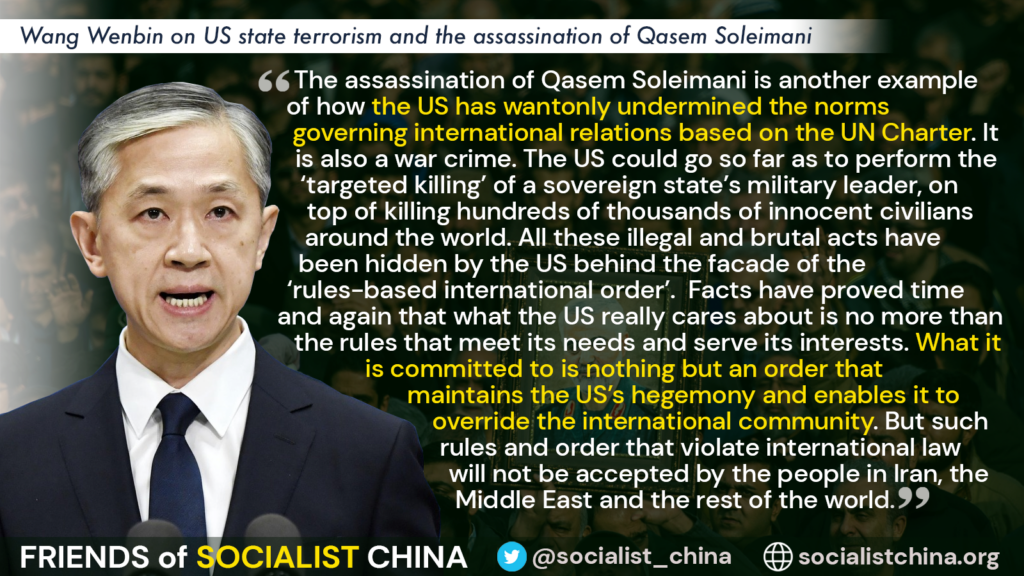
Theoretical and practical innovations in regard to party diplomacy of the Communist Party of China
We are very pleased to be able to make available this important paper by Pan Jin’e, Director and Professor of the International Communist Movement Research Department of the Academy of Marxism, Chinese Academy of Social Sciences (CASS). It was delivered at the Cloud International Workshop on “New Forms of Human Civilization from a World Perspective,” held by the School of Marxism, Dalian University of Technology (DUT), 29-31 October 2021. In his paper, Professor Pan outlines the development of the CPC’s international relations through different historical periods, relating it both to the situation in China and the world as well as to Marxist-Leninist theory. We are grateful to the DUT Translation Team for their work as well as to Professor Roland Boer for his meticulous sub-editing.
Party Diplomacy’s Significant Contributions to the Creation of A New Form of Human Civilisation: Theoretical and Practical Innovations in Regard to Party Diplomacy of the Communist Party of China
Xi Jinping, General Secretary of the Central Committee of the Communist Party of China (CPC), commented in his speech at the ceremony marking the CPC’s 100th anniversary that socialism with Chinese characteristics has created a new form of human civilisation: “We adhere to and develop socialism with Chinese characteristics, promoting the coordinated development of material, political, spiritual, social and ecological civilisations, and thereby creating a new path of Chinese-style modernisation and a new form of human civilisation.”[1] These “five civilisations” are not only a profound summary of the development of socialist civilisation with Chinese characteristics, but also an important connotation of the “new form of human civilisation.”
Continue reading Theoretical and practical innovations in regard to party diplomacy of the Communist Party of ChinaDanny Haiphong: China-Russia partnership is a model for global cooperation in the 21st Century
Chinese President Xi Jinping and Russian President Vladimir Putin held a virtual meeting on December 15th amid increasing aggression against both countries led by the United States. Friends of Socialist China co-editor Danny Haiphong published the following article in CGTN where he argues that China-Russia relations serve as a model for global cooperation and solidarity in the 21st century and beyond. The two heads of state are next scheduled to meet in person at the upcoming Winter Olympics in Beijing.
On December 15, Chinese President Xi Jinping and Russian President Vladimir Putin held a virtual meeting that emphasized the growing cooperation between the two countries amid unprecedented global challenges. Both sides agreed that relations between Russia and China represent a model for global cooperation in the 21st century.
The meeting came less than a week following a series of moves on the part of the U.S. that have intensified its cold war posture toward China and Russia. These include the spread of rumors of a so-called Russian “invasion” of Ukraine, the Biden administration’s “diplomatic boycott” of the Beijing 2022 Winter Olympics, and U.S.’ facilitation of a “Summit for Democracy” which directly targeted China and Russia’s political legitimacy.
There is no denying that U.S.-led aggression toward both China and Russia has driven the two countries closer together. The simultaneous U.S. expansion of NATO along Russia’s border and the exponential growth of the U.S.’ military presence in the Asia Pacific represent very real threats to China and Russia’s national security. Furthermore, both China and Russia have been targeted by U.S.-sponsored riots in China’s Hong Kong Special Administrative Region, Ukraine, and Belarus to name a few. U.S.-led hostilities have also come in the form of economic sanctions. China and Russia have responded to U.S. aggression by strengthening cooperation in the fields of defense, trade, diplomacy, and cultural exchange.
Continue reading Danny Haiphong: China-Russia partnership is a model for global cooperation in the 21st CenturyDanny Haiphong: The West distorts the China-Africa relationship in order to justify its own imperialism
In this speech to a recent webinar entitled Africa/China Relations: Challenges of Cooperation and Development (organized jointly by the International Manifesto Group and the Group for Research and Initiative for the Liberation of Africa), Danny Haiphong explores the evolving win-win relationship between China and Africa, and exposes the West’s distortion of this relationship. The full webinar can be watched on YouTube.
The resumption of diplomatic relations between China and Nicaragua is a blow to imperialism
By Friends of Socialist China co-editor Keith Bennett
On 9 December 2021, Nicaragua’s Foreign Minister Denis Moncada announced the resumption of diplomatic relations between the People’s Republic of China and the Republic of Nicaragua. This was followed the next day by a meeting in the northern Chinese city of Tianjin between Chinese Vice Foreign Minister Ma Zhaoxu and Laureano Ortega, the representative of the Nicaraguan government and a son of President Daniel Ortega, at which the two countries issued a joint communique announcing the re-establishment of their diplomatic relations.
This development is welcome and inspiring news for all those committed to anti-imperialism and especially for all those who care about the prospects for the development of socialism in Central and South America.
Continue reading The resumption of diplomatic relations between China and Nicaragua is a blow to imperialismCarlos Martinez: The Summit for Democracy won’t succeed in propping up US hegemony
Friends of Socialist China co-editor Carlos Martinez was recently interviewed by CGTN in relation to Biden’s upcoming Summit for Democracy, which is in reality an attempt to consolidate pro-imperialist forces globally against China and other socialist and progressive countries. A video segment of the interview is embedded below, followed by the text of the report, which is republished from CGTN.
These issues will be explored in detail at our Summit for Socialist Democracy, to be held on Saturday 11 December.
I think the international context is quite sensitive (and) quite fragile. The main reason behind this being the emerging “new cold war,” which is led by the United States and is directed primarily against China. It’s also directed against Russia, Iran, Cuba, Venezuela (and) the Democratic People’s Republic of Korea.
Essentially, all those countries that you can say, they’re unwilling to accept the U.S. vision of international relations, the so-called liberal international order in which the U.S. enjoys more or less unchallenged hegemony. And U.S.-China relations have really deteriorated in recent years, particularly since 2018.
Continue reading Carlos Martinez: The Summit for Democracy won’t succeed in propping up US hegemonyChina plays a crucial role supporting progress and sovereignty in Latin America
This article by Carlos Martinez, which first appeared in the Morning Star of 4 December 2021, discusses China’s economic engagement with Latin America in recent decades; debunks claims that this engagement is a form of neocolonialism; and concludes that China’s solidarity with Latin America is an important support for sovereign development in the region.
In the last two decades, economic links between Latin America and the People’s Republic of China have been expanding at a dizzying rate. Bilateral trade in 2000 was just 12 billion USD (1 percent of Latin American’s total trade); now it stands at 315 billion USD. In the same time period, China’s foreign direct investment in Latin America has increased by a factor of five.
Since the launch of the Belt and Road Initiative in 2013, 19 of the 33 countries in the Latin American and Caribbean region have signed up to the China-led global infrastructure development strategy. Infrastructure projects have been a particular focus for Chinese firms. Writing in Foreign Policy in 2018, Max Nathanson observed that “Latin American governments have long lamented their countries’ patchy infrastructure.” China has “stepped in with a solution: roughly $150 billion loaned to Latin American countries since 2005.”
Continue reading China plays a crucial role supporting progress and sovereignty in Latin AmericaChina hails solidarity with Africa as cornerstone of its foreign policy
This article from CGTN provides a useful summary of the latest Chinese government White Paper on relations with Africa. China and Africa in the New Era: A Partnership of Equals was published by the State Council of the PRC on Friday, ahead of an important meeting of the Forum on China Africa Cooperation (FOCAC).
China and Africa trust each other, and their friendship is rock solid, a white paper on cooperation with the continent issued by China’s State Council Information Office said on Friday.
The report, titled “China and Africa in the New Era: A Partnership of Equals,” said shared past experiences and similar aims and goals have brought China and Africa close together and they will always be a “community of shared future.”
Developing solidarity and cooperation with African countries has been the cornerstone of China’s foreign policy, as well as a firm and longstanding strategy, it said.
China, Africa to further boost ties
With the 8th ministerial meeting of the Forum on China Africa Cooperation (FOCAC) opening in Senegal on Monday, this useful article from China Daily highlights how friendship, solidarity and cooperation with Africa have been a cornerstone of Xi Jinping’s foreign policy since he became President of China in 2013. His first foreign trip as head of state, days after taking office, took him to Russia, Republic of Congo, Tanzania and South Africa.
Development of relations guided by principles of ‘amity, real results’
Days after he was elected China’s president in March 2013, Xi Jinping embarked on his first overseas trip as head of state. Three of the tour’s four destinations were African countries.
When making a speech at the Julius Nyerere International Convention Centre in Dar es Salaam in Tanzania, Xi said the trip was his sixth visit to the continent.
“When I visit Africa, I am always struck by two things,” Xi said. “One is its continuous progress. Each time I come to Africa, I am deeply impressed by new progress in development, which is most encouraging. The other is the warmth of the African people.”
Continue reading China, Africa to further boost tiesTable tennis champ Connie Sweeris discusses her experience playing in China
Embedded below is a lovely video interview of Connie Sweeris, then the US national women’s singles table tennis champion, reflecting on her visit to China in 1971 as part of the ‘ping-pong diplomacy’ mission – an important first step on the road to US-China normalization. With the Beijing Winter Olympics coming up in early 2022, and with the US and other countries threatening a diplomatic boycott, Connie Sweeris emphasizes the power of sport in breaking down barriers and building understanding between peoples.
Li Jingjing interviews Carlos Martinez on Xi-Biden Summit
Friends of Socialist China co-editor Carlos Martinez was interviewed by CGTN journalist Li Jingjing about the recent Xi-Biden summit, the prospects for the New Cold War in the coming period, the failure of the trade war, the influence of the military-industrial complex on US policy, escalating tensions over Taiwan, and the possibilities for cooperation between the major countries on the question of climate change.
Daniel Dumbrill and Danny Haiphong on the motivations for the New Cold War
In a recent interview with Danny Haiphong on Daniel Dumbrill’s YouTube channel, the two discuss the motivations for the escalating US-led New Cold War against China. The segment is embedded below.
